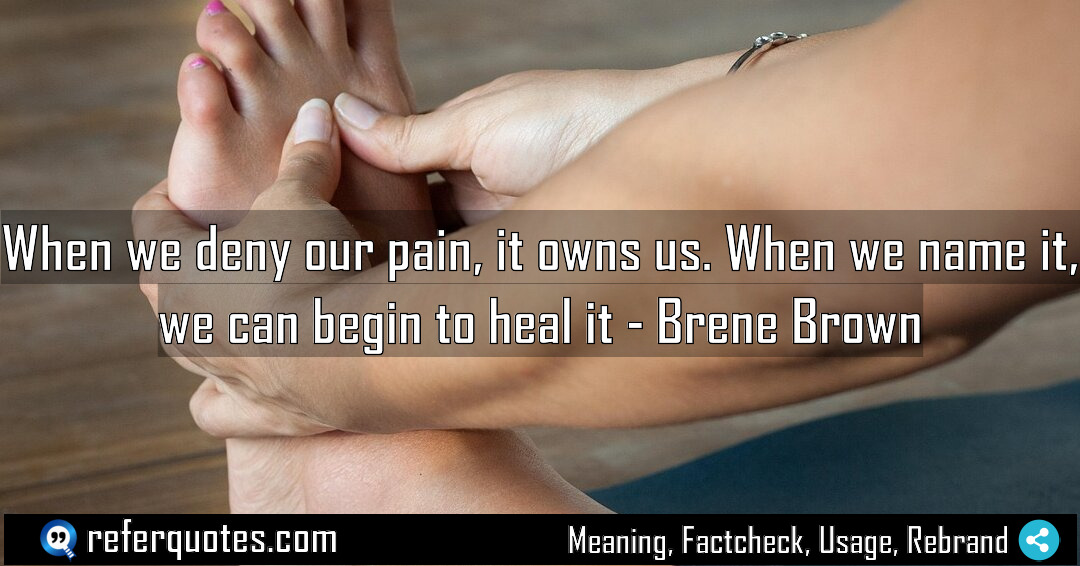When we deny our pain, it owns us. It’s a powerful truth I’ve seen play out time and again. By refusing to acknowledge our hurt, we give it total control over our lives and actions. But the moment we have the courage to name it, to call it out for what it is, that’s when we take the first real step toward healing and reclaiming our power.
Share Image Quote:Table of Contents
Meaning
At its core, this is about the fundamental difference between being controlled by your struggles and taking control of them. Denial equals enslavement. Naming equals empowerment.
Explanation
Let me break this down based on what I’ve observed. When we deny pain—whether it’s grief, shame, professional failure, a personal hurt—we don’t make it disappear. We just shove it into a locked room in our psyche. But it doesn’t sit there quietly. It starts leaking out. It influences our reactions, our decisions, our relationships. We become reactive, defensive, maybe even cynical, all while refusing to admit why. That’s the “it owns us” part. It’s running the show from the shadows.
Now, naming it. This isn’t just a fluffy concept. It’s an act of immense courage. It’s sitting down and saying, “Okay. The thing I’m feeling is betrayal.” Or “This is grief.” Or “I am deeply ashamed that I failed.” You’re not solving it in that moment. You’re just turning on the light in that locked room. You’re seeing the monster for what it is. And the second you do that, its power to control you from the shadows diminishes. You can now see it, you can assess it, and you can start to deal with it. That’s the beginning of the healing process.
Quote Summary
| Context | Attributes |
|---|---|
| Original Language | English (3668) |
| Category | Emotion (177) |
| Topics | awareness (126), pain (20) |
| Literary Style | simple (291) |
| Emotion / Mood | compassionate (35) |
| Overall Quote Score | 73 (94) |
Origin & Factcheck
This wisdom comes straight from the research of Dr. Brené Brown. It’s published in her 2017 book, Rising Strong as a Spiritual Practice. You might sometimes see similar sentiments floating around the internet unattributed, but this specific, powerful phrasing is hers, born from decades of studying vulnerability, courage, and shame.
Attribution Summary
| Context | Attributes |
|---|---|
| Author | Brene Brown (257) |
| Source Type | Book (4032) |
| Source/Book Name | Rising Strong as a Spiritual Practice (39) |
| Origin Timeperiod | 21st Century (1892) |
| Original Language | English (3668) |
| Authenticity | Verified (4032) |
Author Bio
Dr Brene Brown is the author of books such as Daring Greatly and The Power of Vulnerability. The TED talk and Netflix production based on her research reached out to millions of audience. She researches effects of courage and vulnerability in shaping people's work and relationships. She leads the Brené Brown Education and Research Group and provides evidence-based insights into practical tools to help people train themselves
Official Website |Facebook | X | Instagram | YouTube |
Where is this quotation located?
| Quotation | When we deny our pain, it owns us. When we name it, we can begin to heal it |
| Book Details | Publication Year: 2017; ISBN: Unknown (based on her talk and workbook materials); Length: ~60 pages (lecture adaptation, Sounds True audio transcript). |
| Where is it? | Section: Healing and Acknowledgment, Approximate Page 37 |
